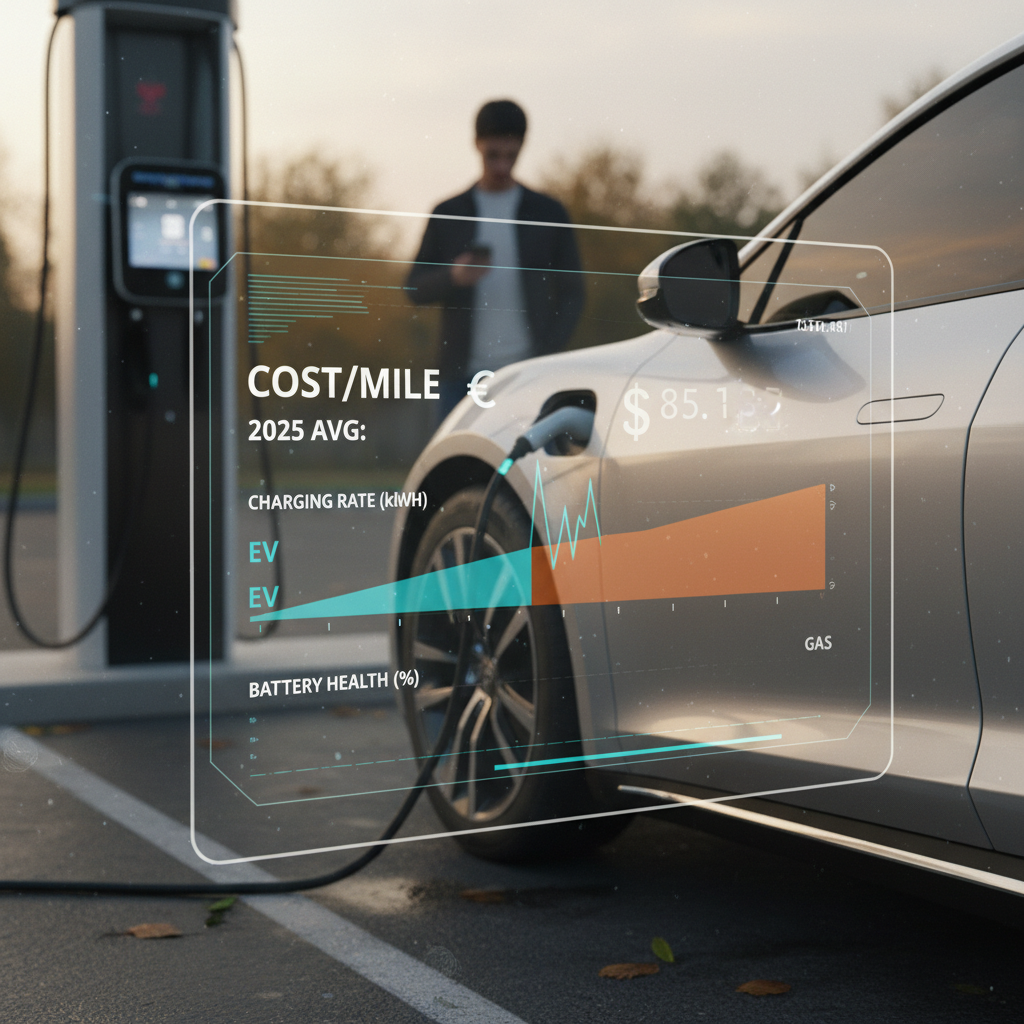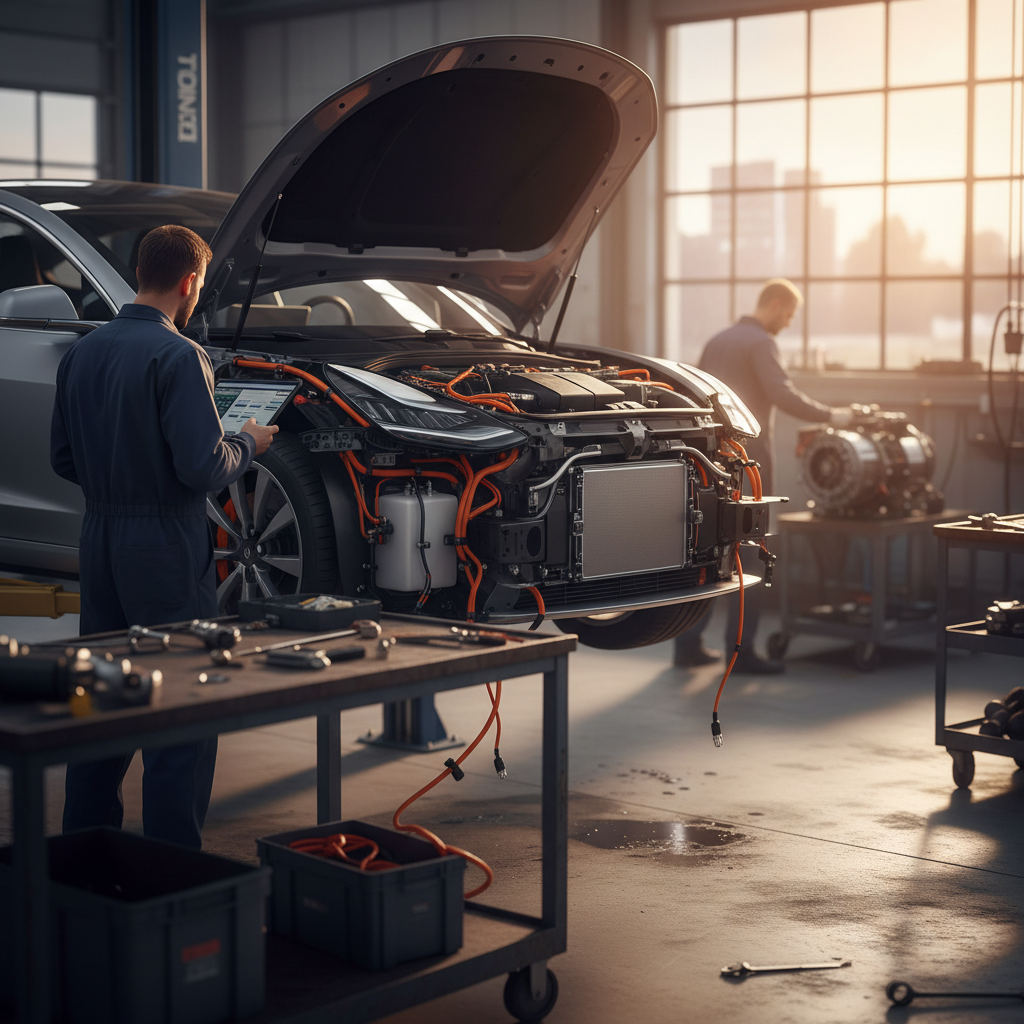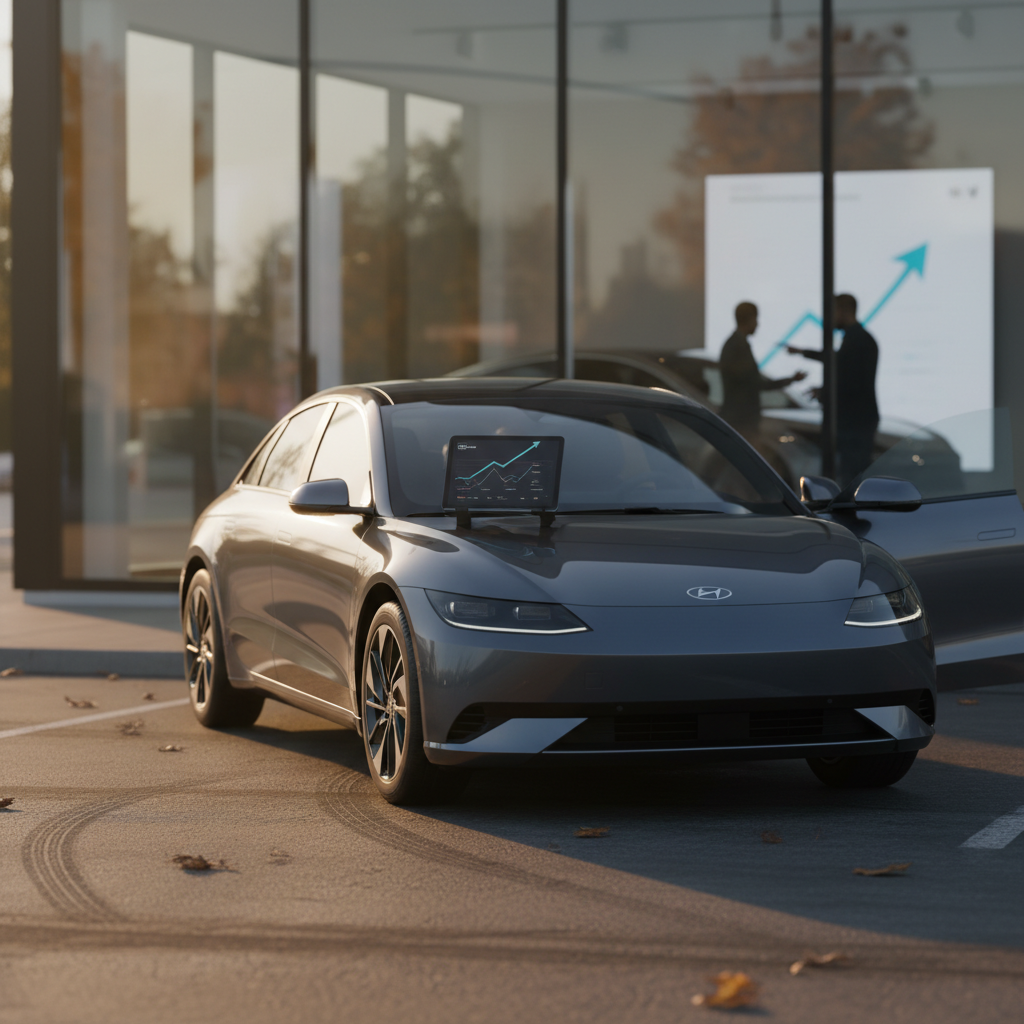If you’ve just typed “fix auto near me” into your phone, your day is not going well. There’s a crumpled fender in your rearview, an insurance app buzzing in your pocket, and, if you drive an electric, one big, quiet question: who can fix this thing without ruining the battery or the resale value?
Quick take
Why you’re Googling “fix auto near me”
Search engines see thousands of variations on this phrase every month: fix auto near me, fix auto collision near me, “best body shop near me,” “EV body shop near me.” The intent is the same: you’ve had an accident and you want the car fixed, fast, fairly, and safely.
What drivers really mean by “fix auto near me”
Three different needs hiding inside one search
“Make it drivable again”
You need structural repairs, panels, paint, sensors, alignment, the whole post‑crash orchestra. This is collision repair, not a quick detail.
“Protect my EV battery”
With an electric vehicle, you’re also worried about high‑voltage components, cooling systems, and range after the repair.
“Don’t wreck my wallet or Carfax”
You want the claim handled smoothly, the repair properly documented, and future buyers not running away when they see an accident on the report.
Don’t let panic pick your shop
What Fix Auto is, and what it isn’t
When you search “fix auto near me”, you might be seeing two things blended together: the generic idea of fixing your car, and Fix Auto the brand, an international network of independently owned collision centers operating in the U.S., Canada, Europe and beyond. In many markets, a Fix Auto USA shop is a franchised body shop that’s agreed to common standards, shared systems, and warranty support.
- Fix Auto (capital F, capital A) is a branded collision repair network of independently owned shops.
- Each location can have different OEM certifications, equipment, and EV experience, even under the same brand sign.
- You don’t have to use a Fix Auto–branded shop just because your search suggested it; any qualified body shop can handle your claim if they meet your insurer’s requirements.
Global network, local reality
Why electric cars change the body shop game
On a gas car, collision repair is metal, paint, and maybe an airbag module. On a modern EV, the crash forces run through a big, expensive lithium‑ion battery pack, miles of high‑voltage cabling, cooling circuits, radar sensors, cameras and lidar. A shop that doesn’t understand that ecosystem can make your car look perfect and still send you home with a problem hiding under the floor.

EV collision repair vs. traditional body work
Same hammer, very different stakes
Unique EV risks
- High‑voltage safety: Pack isolation, safe shutdown, no “DIY” jump‑starts.
- Battery damage: Even a minor underbody hit can compromise the pack structure or cooling.
- Thermal events: Incorrect storage or charging of a damaged EV can create fire risk.
New repair skill‑set
- OEM scan tools and software updates.
- ADAS calibration (cameras, radar, parking sensors).
- Aluminum, high‑strength steel and composites repair.
Critical for EV owners
How to evaluate any “Fix Auto near me” shop
Whether you’re looking at a Fix Auto–branded location or any local body shop, the checklist for an EV‑savvy collision center is the same. You’re not just judging the coffee in the waiting room, you’re judging their relationship with engineering reality.
EV‑ready collision shop scorecard
Use this quick matrix to compare shops that pop up when you search “fix auto near me.”
| What to check | Why it matters | Red flag answer |
|---|---|---|
| OEM certifications (Tesla, Rivian, Hyundai, etc.) | Shows the shop is trained, audited and equipped for your specific vehicle. | “We work on everything, no special certs.” |
| High‑voltage training & safety procedures | Technicians know how to disable, test and store EVs safely. | “We just disconnect the 12V battery.” |
| Battery & underbody inspection capability | Confirms they can inspect packs, cooling and structure, not just the bumper. | “We don’t touch the battery; that’s the dealer’s problem.” |
| ADAS calibration equipment or partners | Ensures cameras, radar and parking sensors work after repair. | “Those warning lights usually go away after you drive a bit.” |
Four pillars that separate a true EV‑ready shop from a generic body shop.
Two‑shop rule
Eight questions to ask before you hand over the keys
Collision centers do their best talking with the paint booth running, they’ll tell you everything is fine. Slow the conversation down with specific questions. You’re not being difficult; you’re protecting a very expensive battery and the future value of your car.
Your “fix auto near me” phone script
1. “How many EVs do you repair each month?”
You’re listening for real numbers and familiarity: Teslas, Hyundais, Fords. A shop that sees EVs weekly is better than one that sees one every Christmas.
2. “Are you certified by my vehicle’s manufacturer?”
Tesla, Rivian, Ford, Hyundai, Kia and others maintain lists of approved body shops. Certification isn’t everything, but it proves tooling, training and audits.
3. “Who handles high‑voltage diagnostics and battery inspection?”
Ideally, the shop has <strong>in‑house high‑voltage techs</strong> or a direct relationship with a dealer or OEM‑certified partner, not a vague ‘we’ll figure it out.’
4. “Can you show me your written warranty?”
Many networks, including big brands like Fix Auto, offer <strong>lifetime warranties</strong> on workmanship. Get it in writing and keep it with your insurance paperwork.
5. “Do you calibrate cameras and radar on site?”
Modern ADAS systems need precise alignment after repairs. Ask whether they have a calibration bay or use a known specialist, and whether it’s included on the estimate.
6. “Will you use OEM, recycled, or aftermarket parts?”
Depending on your insurer and state law, you may have options. OEM parts usually fit and perform best; recycled OEM can be a smart compromise.
7. “How will you document the repair?”
You want <strong>photos and a detailed invoice</strong>. This helps protect resale value later and gives future buyers confidence if they see an accident on a history report.
8. “What’s the realistic timeline, given parts availability?”
EV‑specific parts can take longer to arrive. A candid timeline beats an optimistic one that slips three times while you pay for a rental.
Insurance “steering” vs. your right to choose a shop
After a crash, your insurer may text you a link to a “preferred” or “direct repair program” shop, often including brand‑name networks like Fix Auto. These shops have agreements with the insurer to streamline estimates, billing and sometimes rental cars. That can be convenient; it can also subtly nudge you into repairs that prioritize cycle time and cost over obsessively perfect work.
Pros of preferred shops
- Faster approvals and fewer phone calls.
- Digital photo estimates and status updates.
- Often include lifetime warranties backed by the network.
Cons to watch for
- Insurer pressure to use cheaper parts where the law allows.
- Less willingness to deviate from “guidelines” even when your EV needs extra steps.
- You might assume you have no choice when you actually do.
Know your rights
Post‑repair checklist for EV drivers
The day you pick up the car should feel like a reunion, not a gamble. Instead of just admiring the paint, give the car a short audition. You’re looking for anything that suggests shortcuts under the skin.
Ten‑minute inspection before you sign
Walk the repair in daylight
Look at panel gaps, reflections in the paint, and alignment of trim. Slight variations are normal; big misalignments are not.
Check warning lights on startup
No amber Christmas tree. Pay attention to high‑voltage, airbag and ADAS icons. Anything lingering deserves an explanation before you leave.
Test doors, trunk and charge port
Open and close everything on the repaired side. Charge at the shop or nearby to be sure the port and door behave normally.
Drive at city and highway speeds
Listen for new rattles, wind noise or pulling to one side. A good shop will road‑test, but trust your own feel too.
Try driver‑assist features
On a safe, clear road, test adaptive cruise, lane keeping, parking sensors and cameras. Collisions are exactly when you need these systems working.
Review the paperwork
Confirm the actual parts used, any structural work, and a copy of the <strong>warranty</strong>. Store this with your insurance documentation for future reference.
Shopping used EVs after an accident history
Accidents don’t automatically make a used EV a bad buy. What matters is how bad the damage was and how good the repair is. This is where a brand‑name collision center and thorough documentation become your best friends.
What to look for on a listing
- Mention of OEM‑certified or brand‑name shops (including Fix Auto locations) in the repair history.
- Detailed invoices and photos of the repair, not just “bumper replaced.”
- Consistent panel gaps and no obvious color mismatch in person.
Where Recharged fits in
Every vehicle on Recharged comes with a Recharged Score Report that includes verified battery health and a deep dive into history and condition. If a used EV has prior collision repairs, our specialists review documentation and how the car drives and charges, so you’re not buying someone else’s headache.
Ask for the receipts
FAQ: “Fix auto near me” and EV repair
Frequently asked questions
The bottom line
Typing “fix auto near me” is the start of a process, not the end. The nearest shop or the loudest brand isn’t always the right fit for a modern electric vehicle whose heart is a battery pack worth as much as a compact car.
Slow things down. Ask about EV experience, high‑voltage safety, OEM certifications and calibration. Read the estimate, insist on documentation, and test the car thoroughly before you sign. If you’re buying a used EV with accident history, lean on transparent marketplaces like Recharged, where every car comes with verified battery health, fair‑market pricing and support from people who live and breathe EVs.
A good collision repair doesn’t just make your car look right. It makes it drive right, charge right, and feel safe again, for you and for whoever owns it next.



